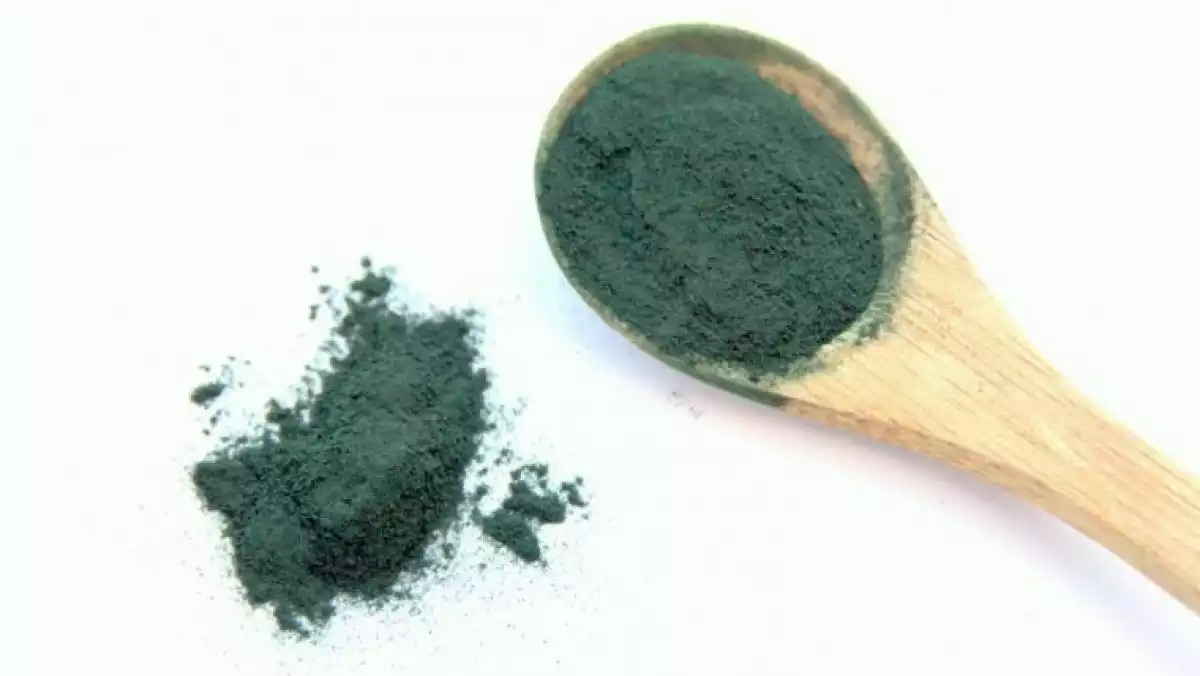Spirulina is a type of blue green algae that has become very popular in the last years, primarily as a dietary supplement and in capsules. It has been consumed naturally as food for thousands of years. It is said it has excellent nutritional value and it is useful for weight loss, although the scientific community has questioned the existence of these properties.
In this article, we will find out what spirulina is for and what benefits it has, whether consumed as a food or as a dietary supplement. We will also briefly review the history of spirulina and analyze the contraindications and side effects associated with its use.
What is spirulina?
Before the arrival of the Spanish conquerors in America, spirulina was already used as food by Mesoamerican cultures. For instance, Aztecs got it from lake Texcoco (around which the capital, Tenochtitlán, was founded, and whose space is currently occupied by Mexico City) and they prepared cakes with it, which were called "tecuitlatl."
Similarly, the Kanembu tribe, native from the region where lake Chad is, in Africa, prepared a similar product called "dihe" from some spirulina they got from near the lake, which they then let it dry. From the compound that is obtained, broth is made, even today.
No one found out until the decade of 1965 that the characteristic algae from the Texcoco lake and the one in the Chad lake belonged to the same genre, Spirulina. It was then when the scientific community started studying the properties and benefits of spirulina more or less systematically.
This also led to the foundation of the first large-scale spirulina production plant near Lake Texcoco. However, it was not until the new century that these algae began to be exploited in a similar way in the region next to Lake Chad.
Nowadays, spirulina is used mainly as a nutritional supplement, especially in rich countries, while in developing countries it is frequently consumed as everyday food. In its variant as a supplement, spirulina is commercialized in capsules.
Spirulina benefits
Spirulina is a food rich in essential nutrients. The spirulina nutrition facts are: high levels of vitamin B, such as iron, magnesium and other minerals, and it provides our body with significant quantities of proteins, carbohydrates, and healthy fatty acids.
It is said that spirulina could be useful for people who want to lose weight, due to the spirulina health benefits for our organism and its potential as a dietary supplement, which would allow it to replace other foods.
Although it has also been said that spirulina can be useful to combat high cholesterol or hypercholesterolemia, diabetes mellitus or HIV/AIDS, the truth is that the current scientific evidence does not allow us to state that spirulina is beneficial as a natural medicine or as a dietary supplement.

In spite of all this, we have just mentioned, prestigious institutions such as the World Health Organization or the United Nations have promoted the consumption of spirulina for its potential benefits and properties as a food. In particular, its potential to be used as a tool to combat malnutrition and the deficit of essential nutrients in which spirulina is rich has been highlighted.
Sometimes, these blue-green algae can be contaminated by toxins such as microcystins, which carry a risk of damage to the liver and other organs, especially in children. On the other hand, spirulina can have some side effects for people who have phenylketonuria, a disorder of genetic origin that causes the ingestion of certain foods to cause brain damage due to deficits in the metabolism of the amino acid phenylalanine.
How to take spirulina
You can find spirulina in many forms, which vary depending on where you buy it. The most common ways of taking spirulina are in capsules or powder.
On the other hand, it is also used quite frequently in the meat industry. It is used as a dietary supplement to feed fish and some types of birds.
Those who defend the properties of spirulina to lose weight usually recommend taking some around half an hour before eating. This is related to the fact that it causes a feeling of satiety, reducing hunger for the next meal, probably richer in carbohydrates and fats than the algae.
Spirulina side effects and contraindications
The main spirulina contraindications have to do with the thyroids, a gland whose function can be altered resulting in medical histories known as "hyperthyroidism" and "hypothyroidism."
Spirulina contains some amount of iodine that can have some side effects for people with these conditions, especially in the case of thyroid hyperactivity -this is, hyperthyroidism. On the other hand, it is generally considered that taking small doses is safe in cases of hypothyroidism although it could also be contraindicated.

Another contraindication when taking spirulina is the precaution during pregnancy and kidney conditions, which can cause health problems if some substances are consumed in excess and it is not possible to eliminate all their toxins. Taking spirulina to lose weight can be dangerous, and as we have mentioned above, the scientific research hasn't shown the effectiveness of spirulina to lose weight.
- This article about "Spirulina" was originally published in Spanish in Viviendo La Salud

